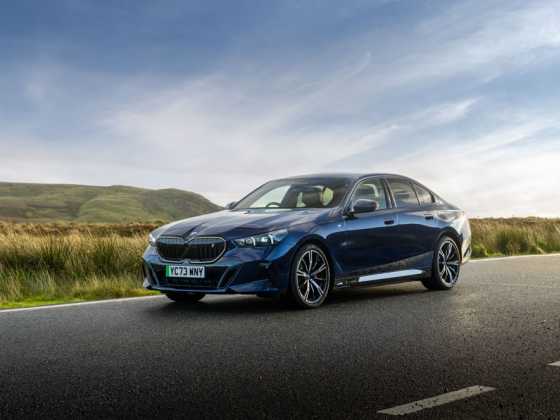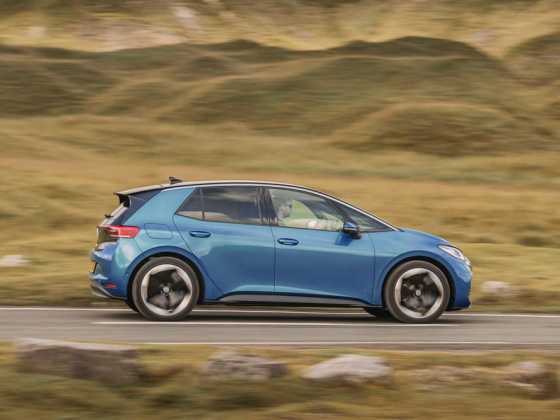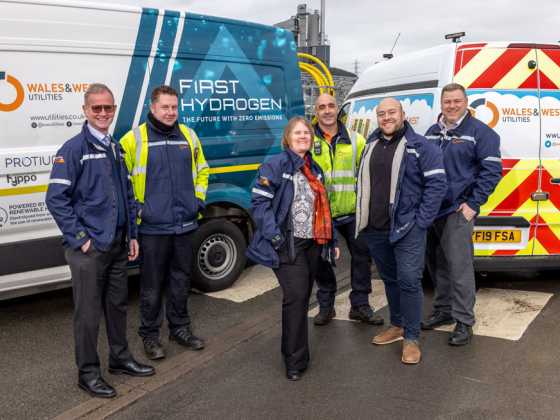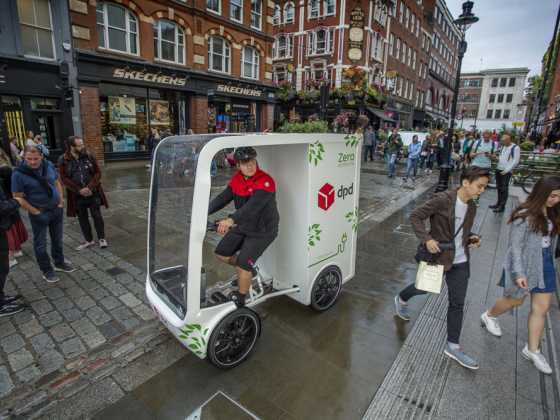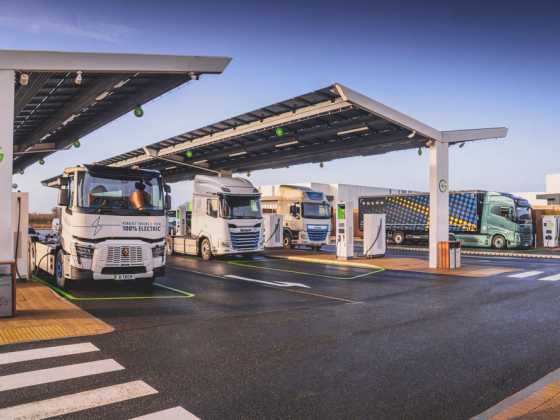Are plug-ins the answer to future transport?
The findings from a year-long electric vehicle trial in the Coventry and Birmingham areas paint a positive picture for electric vehicle acceptance

Having collated and analysed a full 12 months of data from electric vehicle (EV) users, CABLED – the UK’s largest study into long-term low carbon vehicle use – has revealed why EVs are a viable urban transport solution, the implications of habitual charging behaviour, and the patterns of energy use during the trial’s 147,000 mile study.
As the largest of eight public trials taking part in the Technology Strategy Board’s £25m Ultra Low Carbon Vehicle Demonstrator programme, CABLED (Coventry and Birmingham Low Emission Demonstrators, see box) has now collected robust data that can be used to support future decisions relating to transport and infrastructure planning.
The data, taken from 25 Mitsubishi i-MiEVs and 20 smart fortwo electric drives during the course of the trial, shows that in spite of initial scepticism surrounding the capability of EVs and concerns over range anxiety, they are more than capable of meeting the needs of drivers that require efficient urban transportation.
THE TYPES OF JOURNEYS
This is reflected by the finding that most journeys undertaken (77 per cent) lasted less than 20 minutes and only two per cent used more than 50 per cent of the battery – enabling a return journey to be made without the need for recharging in the majority of cases. The data also showed a trend towards drivers travelling longer journeys over time - indicating increased confidence and reduced range anxiety.
Project leader Neil Butcher from co-ordinating CABLED partner Arup believes the data presents a positive outlook for EVs: “These findings form part of the largest study of low carbon vehicle use ever compiled and, whilst our study is on-going, it’s already clear that EVs offer a viable, practical urban transport solution. We must now consider how our homes, offices and public spaces will need to evolve in order to cater to both users’ needs and the rapidly developing technologies powering these vehicles.”
In relation to charging behaviour, the CABLED data clearly shows that EV users are not motivated to replenish their vehicle’s battery by reaching a particular point of depletion; rather they are driven by convenience and with data showing the vehicles are parked for 97.2 per cent of the time (23.3 hours each day) it is apparent that there is ample opportunity for them to be plugged-in.
The most popular point at which people commenced charging was when the battery had between 81-87 per cent of its charge remaining. With the majority of journey’s using less than 2kWh of power (around 12 per cent of charge) this behaviour indicates that charging habitually takes place upon reaching a destination.
CHARGE TIMES
The average charge time was between two to three (typically equivalent to half of a full charge) with an energy transfer of 6kWh costing around 60-80p depending upon tariff (equivalent to one load in a washer dryer). Peaks for charging were observed from 7-9am and from 6-7pm, which can be most likely attributed to charging on arrival at work in the morning or home in the evening. Another peak was seen after 11pm when CABLED participants used timers to take advantage of off-peak energy tariffs.
Charging data such as this helps inform the development of energy infrastructure and Smart Grid technology, as head of group E-Mobility R&D at E.ON Charles Bradshaw-Smith explains: “Meters installed at each user’s home are giving us invaluable information on charging behaviour. The most popular time to charge a vehicle is rightly overnight. But as most journeys are relatively short (with five average journeys per charge) this allows scope for exactly when the car is charged each night to minimise cost and maximise carbon savings. Such evidence supports the need for automated intelligent charging technology that will allow EVs to interact with the distribution grid – an area which E.ON is researching into.
"The ultimate goal is to allow drivers to take advantage of low cost power due to EVs both drawing and feeding into the grid to smooth demand peaks and save carbon.”
MASS MARKET APPEAL
CABLED is one of several government measures designed to increase the number of low carbon vehicles on Britain’s roads and reflecting on these findings Mitsubishi Motors’ in the UK managing director, Lance Bradley added: "It's very encouraging to see this statistical evidence from the CABLED trial. It clearly backs up our own experience and studies in Japan that people adapt very quickly to driving a pure-EV, such as the Mitsubishi i-MiEV. To know that people complete up to five normal journeys per charge, and at such a low cost, underlines the fact that EVs are here to stay and can find mass-market appeal."
Brian Price from Aston University, which was responsible for analysing the data obtained from each vehicles on-board telemetry commented: “Through satellite tracking and on-board telemetry, we have been able to monitor real-world usage of the latest ultra-low carbon vehicles technologies on an unprecedented scale.
“Journey data over the first 18 months of the trial shows us that the battery range of electric vehicles more than covers most users’ needs, with most drivers finishing their daily journeys still with over 40 per cent charge remaining. Typical users only need to recharge every two to three and choose the convenience of a home charge overnight or at their place of work over 85 per cent of the time.
“Public charging points provided as part of the trial are proving popular, but less necessary than originally thought, as users gain confidence in the range capability of the vehicles. The trial has shown that the current generation of low carbon vehicles are as capable as conventional diesel and petrol engines for performance and ease of use, whilst having significantly lower emissions and operating costs.”
A PART OF EVERYDAY LIFE
Gary Savage, managing director of Mercedes-Benz Cars, who supplied the smart vehicles, said: “We’re delighted to see how people are embracing electric vehicles and the findings of this research demonstrate how seamlessly the smart electric drive has fitted into people’s everyday lives.
“Since the trial started we’ve delivered a further 25 vehicles into the CABLED trials, so even more people will be able to experience what life is like with a smart electric drive. The results so far, combined with our findings from other international markets confirm that the smart electric drive is an integral feature of tomorrow’s motoring landscape.”
FOR MORE INFORMATION
Further details on the CABLED project can be found at www.cabled.org.uk
About the CABLED consortium
The West Midlands consortium, called CABLED – short for Coventry and Birmingham Low Emission Demonstrators – is made up of 13 organisations, led by Arup, a company with experience that crosses all areas that touch this project, from vehicle design to planning to infrastructure and energy.
The West Midlands consortium will trial 110 of the 340+ vehicles taking part in the Technology Strategy Board’s £25m Ultra Low Carbon demonstrator programme. During which each of the vehicle manufacturers – Jaguar/Land Rover, Mitsubishi/Colt, Mercedes Benz/smart, Tata Motors and Microcab Industries – will contribute vehicles, which includes a mix of fully electric vehicles, plug-in hybrids and hydrogen fuel cell cars.
Electricity providers E.ON are delivering charging points for the trial with assistance from the city councils of Birmingham and Coventry.
Three of the Midland’s leading universities play a major role in the scheme with Coventry University undertaking the selection process of drivers, Aston University analysing vehicle usage data and the University of Birmingham contributing access and expertise gained from its hydrogen fuelling station, which is currently one of the very few of its kind in UK. A new hydrogen station is planned for Coventry University.
About the trial
The CABLED data so far has EV users in both Mitsubishi i-MiEVs and Smart Fortwo electric drives. The data is for a year’s driving in 25 i-MiEVs (which were handed over to members of the public in December 2009) plus 20 smart fortwo electric drives that were rolled out gradually over the second six months of 2010.
Each vehicle in the CABLED trial is fitted with GPS and data logger, designed and installed by Coventry based RDM Automotive. These record the usage, location and charging habits of each vehicle. From this data the following information can be analysed:
• Frequency of individual journeys
• Length and duration of journeys
• Date & time of journeys
• Energy used per journey
• Duration and amount of energy transferred during charge
• External temperature
• Location of charging/parking, i.e. home, work, public etc.
• Speed

